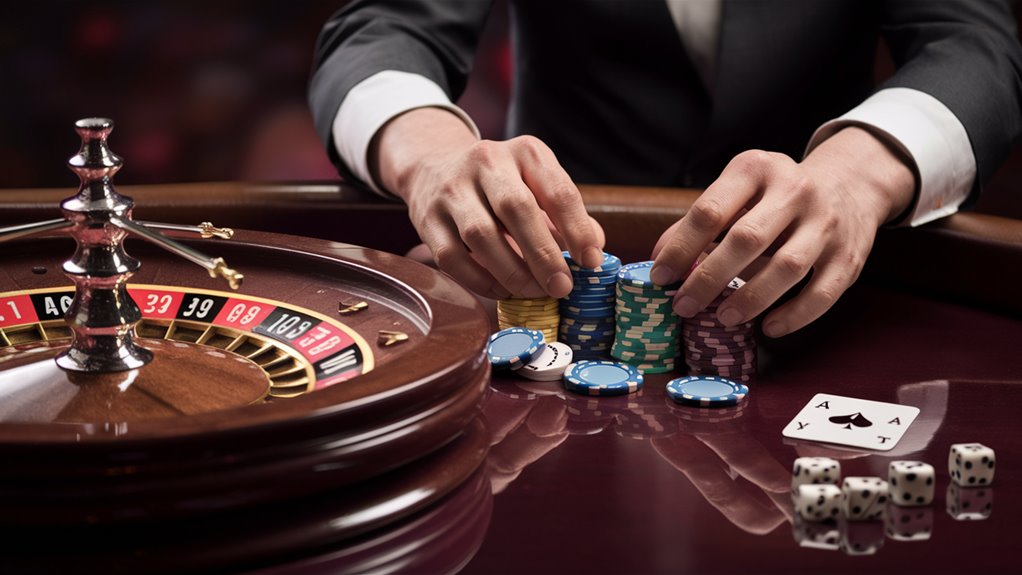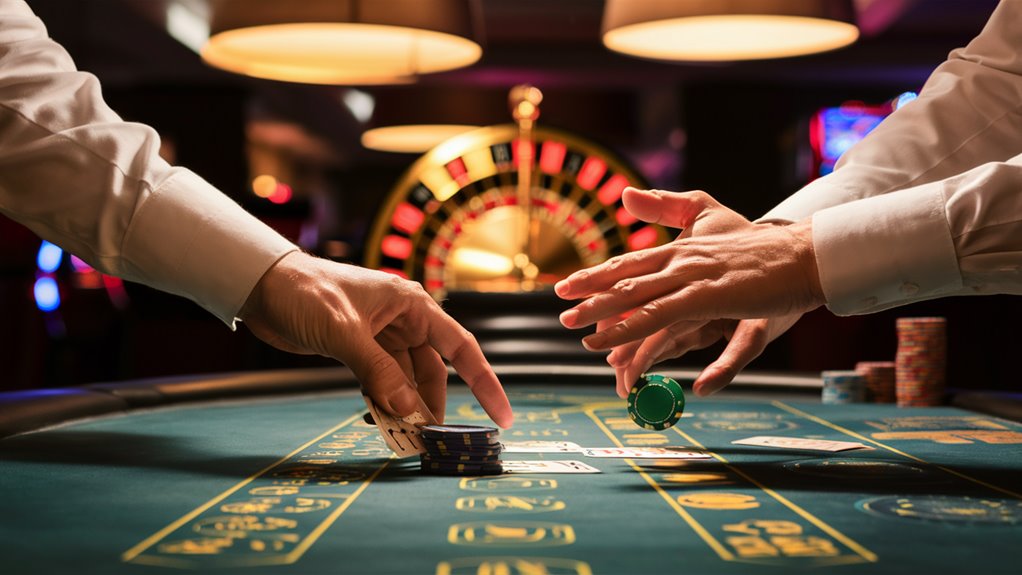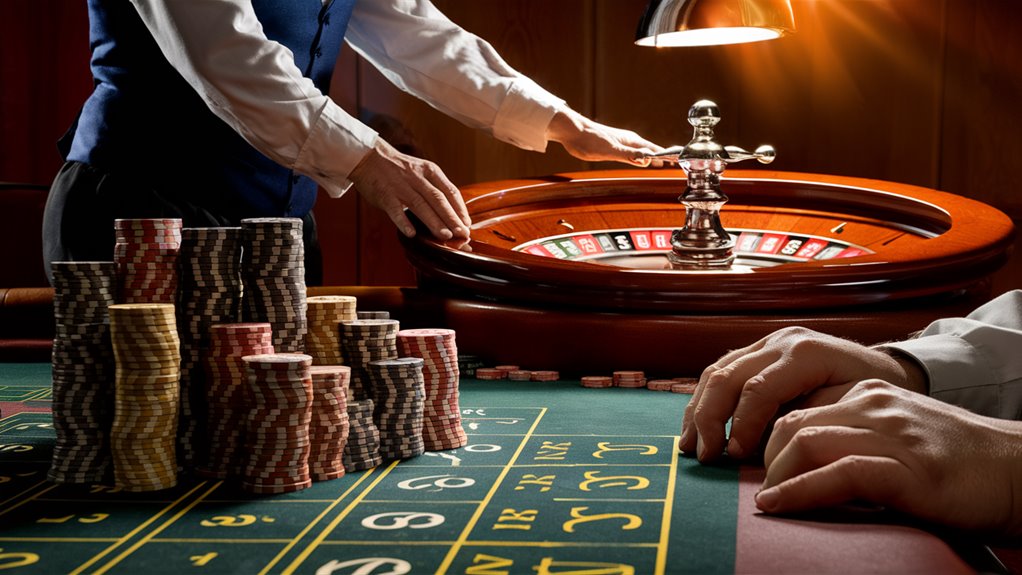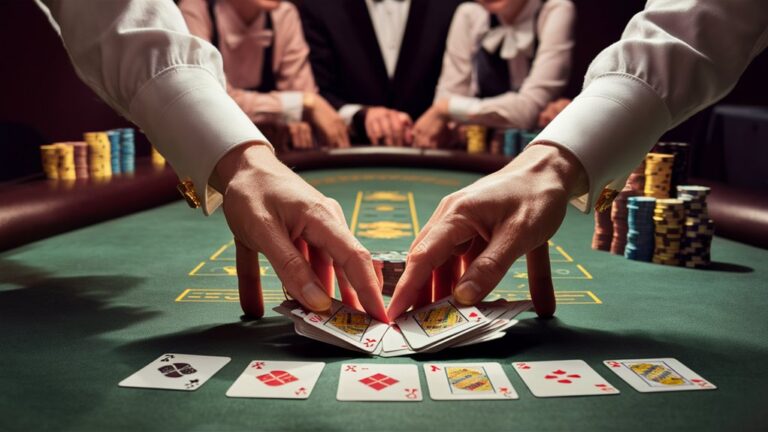
Luck vs Skill in Casino Games: A Simple Look

What Makes Casinos Work?
The link between luck and skill in casino play is clear in the numbers. Games of pure chance like slots and roulette rest fully on random 먹튀검증 공식 추천 확인하기 outcomes. These games don’t let players use plans to change results.
Games That Need Skill
Games like blackjack and poker mix chance and player choice. Using smart blackjack play, players can lower the house edge to just 0.5%, while poker shows about 70% skill impact over time.
House Edge and Casino Gain
Even with skill games, places keep making money due to set house edges. This built-in lead makes sure they get money over time, no matter how good a player is.
What Players Get Wrong
- Have more control than they do
- Underplay the role of luck
- Can beat the odds with their skills
What Data Shows about Games
- Slots: All about luck
- Roulette: Just chance at work
- Blackjack: Better play equals better odds
- Poker: Skills matter over time
Knowing this helps players pick games and bet wisely, seeing where chance can’t be beat.
Only Luck Games
Games of Pure Chance
How Random Wins Work
Games of only chance like slots, roulette, and keno don’t link one play to the next. Past rounds don’t touch future ones.
Modern slot machines use random number tech to set results. They pay back 85% to 98% on average.
Better Odds in Roulette
European roulette offers a 2.7% edge, while American roulette ups it to 5.26% because of an extra slot.
The wheel has 37 or 38 spots, with no way to change fixed odds.
Edges and Sure Values
Keno sets very high house edges, often over 20%.
Chances stay the same across all games of chance, no matter how you bet.
The big number rule makes sure real scores match expected ones, using edge times bets to show likely losses.
How Random Games Stick to Rules
- Each play stands alone
- Odds don’t shift
- What happened before doesn’t count next
- Edges set long-term results
- No bet system beats set math
Why Players Bet As They Do
What Drives Bets: A Closer Look
Mental Traps in Betting
Players show clear mind biases when betting against solid math odds.
They might think a win is “due” after losing, or up their bets after losses, feeling a win must come.
How the Brain Reacts to Betting
Brain chemicals play a big part in why gambling feels good.
Random payouts, especially in slots, make players keep coming back.
Studies show a 30% win rate works best to keep players hooked but still losing enough to profit the place.
How Players See Risk and Loss
Players hate to lose more than they like to win, pushing them to risky bets to try and win back losses, a bad call known as the sunk cost trap.
Main Mental Bets Mistakes:
- Wrong ideas on odds
- Chasing rewards due to brain reactions
- Seeing risk through a loss-hate lens
- Making bets based on past losses
Skill in Casino Games
Smart Plays in Casinos: Full Details

Games, Chances, and Smart Moves
Making choices in games leads to different win chances and expected money back.
Games give different chances for skill, from none to a lot.
Best Plays in Blackjack
Basic methods in blackjack drop the edge to about 0.5%, one of the best odds for smart players.
Every choice, like hit or stand, changes how likely you are to win.
Using the best play path lets players max their likely wins based on good math.
Slots vs Smart Gaming
Random Number Tech sets slot outcomes with no room for player strategy, only money control.
They payout based on luck only, with game return rates from 85% to 98%.
Poker’s Skill Show
Pro poker shows about 70% skills in long runs, proving skills outweigh luck there.
Both tournament and cash games show that the best players keep winning big, showing skills rule here.
Strategy in Other Games
Video poker mixes game play with choices, letting good players lose less than 1% with perfect game paths.
Even mainly luck games like baccarat let betting strategies move overall win chances.
Edges and Game Chance Facts
Casino Edges and Player Odds
How Places Keep Sure Wins
Casino math shows a clear win setup: the house edge makes sure places get money over time.
With exact odds work, we see how this edge shows in popular games. In double-zero roulette, the 5.26% edge means a $5.26 loss per $100 bet over time.
Edge Changes by Game
Different games have different edges:
The edge in blackjack is low at 0.5% with smart play, but slots can take 2-15%.
These numbers are from tight math on all possible plays and odds.
Odds and Long Play Scores
While short luck bumps can hide edges, making brief win or loss runs, the big numbers law always wins.
Long-term numbers match expected ones, proving no bet system can beat the house setup—it’s deep in the game’s math.
Main Edge Numbers:
- Roulette: 5.26% (double-zero)
- Blackjack: 0.5% (with good play)
- Slots: 2-15% (depends on the machine)
- Craps: 1.36% (pass line bet)
- Baccarat: 1.06% (bank bet)
Myths in Skill and Wins
Big Myths in Winning Games: The Numbers
Real Odds vs Player Tales
Gambling myths hang on because players don’t get the real chance rules and game chances.
They think they’ve cracked roulette or slots, finding patterns or tricks. These ideas go against the base math of each play standing alone and the big numbers law.
Breaking Down False Beliefs
The Hot Streak Mistake
Deep number checks on lots of bets prove past rounds don’t sway future ones in pure chance games. The hot streak tale is a big but baseless belief in betting.
The Due Number Myth
In roulette, each spin is 1/37 (Europe) or 1/38 (USA) chance, never changed by past spins. Thinking any number is “due” breaks basic game math. The Ultimate Guide to Online Roulette Strategies
Skill vs House Edge Mistake
Exact math shows even perfect plans can’t shift the house edge in just luck games. The casino’s win chance doesn’t change with player moves or bet tricks.
Data vs Betting Tricks
Long gambling records fit expected math, always busting claimed master plans. Number studies show real results always follow set chances, not supposed patterns or systems.


